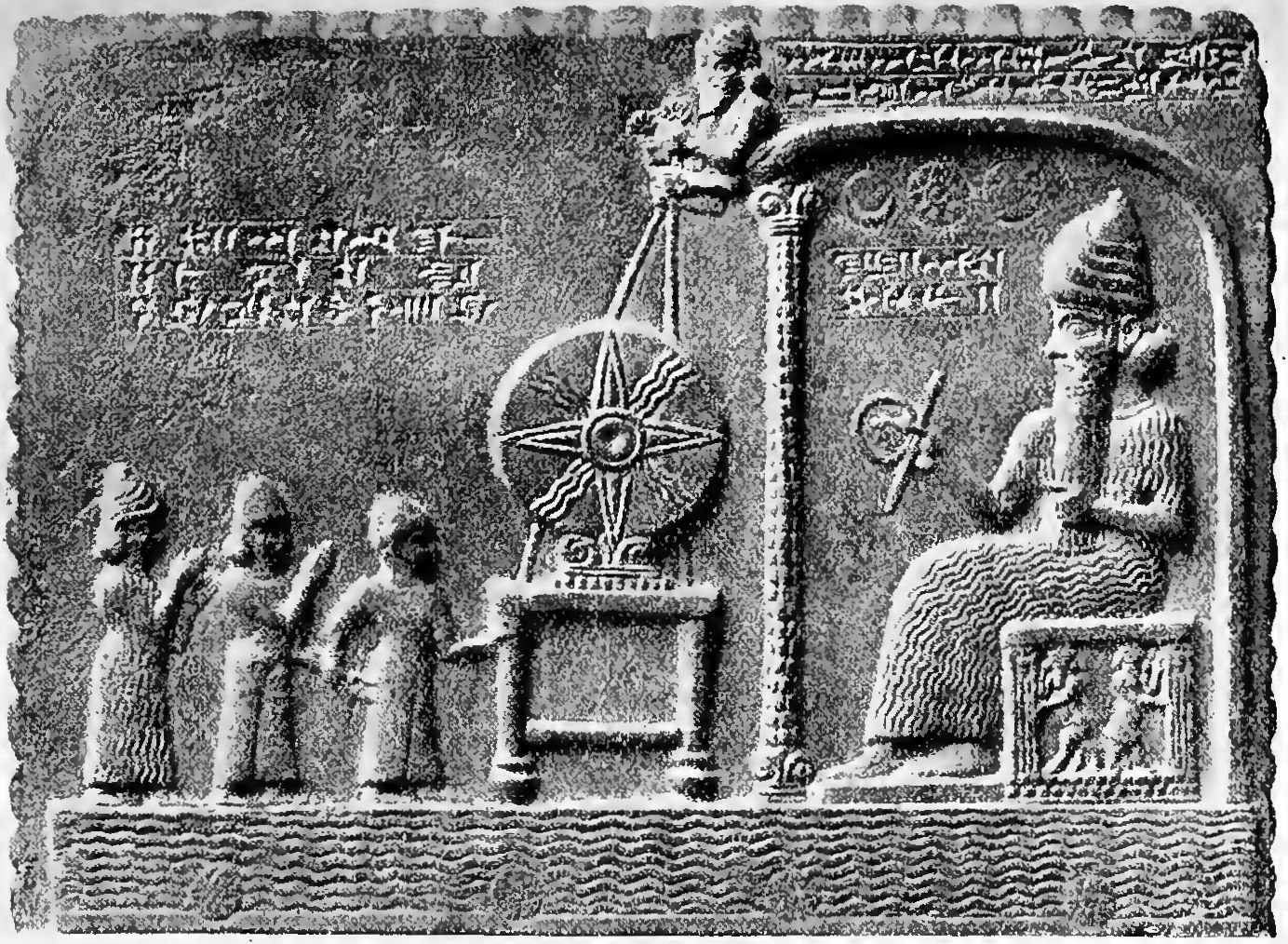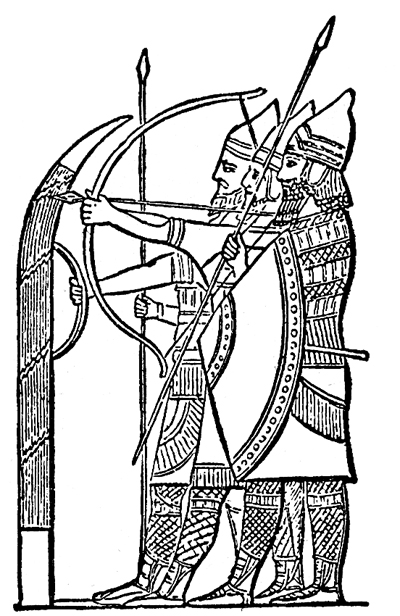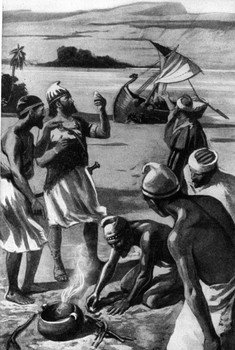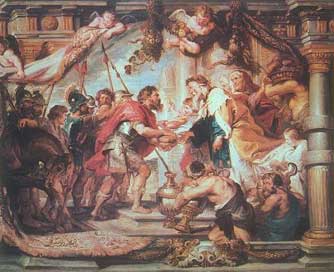Tribes That Settled In:
Sumerians
- The Sumerians built their cities on the east side of Sumer. Even though the land was flat and swampy, the soil was good enough to be used for planting crops. They also encountered problems along the way like flooding, limited resources and no walls for protection.
Contributions
- Created the first large cities.
- Built the first ziggurats or temples.
- Formulated laws.
- Created a lunar calendar.
- Math
- The Wheel.
- Cuneiform
Akkadians
- A conqueror named Sargon led his army from Akkad and defeated the city states of Sumer. The Akkadians were a Semitic people that means they speak a language related to Hebrew and Arabic.
Taking control of almost every part of Mesopotamia Sargon created the world's first empire.
Contributions
- Built the first empire in the history of the world.
- Improved mathematics.
Babylonians
- A group of Semitic nomadic warriors invaded Mesopotamia. They were led by an Amorite leader named Hammurabi he was a statesman and a military ruler. His most important contribution to civilization is his written code of laws found at Susa.
Contributions
- Code of Laws by Hammurabi.
- Mathematics, specifically in astronomy.
- Medicine
- Great pottery works
Hittittes
- The Hittites are a group of Indo-European speakers they occupied Asia Minor. They were herdsmen from the Northwest of Babylon. They were the first people who used iron for weapons. Using their iron weapons the Hittites moved up to the western part of the Fertile Crescent. They also had a more humane legal system, in their laws capital punishment was only reserved for big offenses.
Contributions
- Use of Iron weapons for the first time.
- Chariots for use in war.
- Iron artifacts.
Assyrians
- The Assyrians came from the northern portion of Mesopotamia. They also kept getting invaded by outsiders so they developed a warlike behavior. Around 650 B.C. the Assyrians fought the Hittites and settled along the Tigris River and built the city-state of Assur. They were known as one of the most aggressive and most warlike of all the ancient people. They brought taxes and tribute to the empire. At the era of their greatness the Assyrians founded the city of Nineveh their capital.
Contributions
- Taxes and tribute.
- The first people to develop extensive laws regulating life within the royal family.
Chaldeans
- The Chaldeans defeated the Assyrians and rebuilt Babylon. the ruler, Nebuchadnezzar made Babylon a city of wonders. He built a lot of beautiful structures like the Hanging Gardens of Babylon. They were also called as the "Stargazers of Babylon". Their fondness of the stars made astrologers out of them. They kept records of the movements of the planets and stars and constellations. They came to know how to foretell the future from day to day. They captured Jerusalem and sent thousands of Jews as slaves in Babylon.
Contributions
- The Hanging Gardens of Babylon.
- Zodiac Sign.
Persians
- The Persians are led by a military genius by the name of Cyrus the Great. He took Babylon and later took the rest of the Fertile Crescent. Since Cyrus did not destroy Babylon he won the respect of his captured people therefore making them his own people. He believed in honoring religious buildings instead of destroying them. After the death of Cyrus, Cambyses the succeeding ruler of the empire annexed Egypt. Years later Darius, Cambyses' successor extended the empire up to the southeastern region of Iran. The Persians were known to be the mightiest empire at the time. Under Darius' rule he assigned inspectors in all provinces, They maintained the road system by the Assyrians.
Contributions
- Use of coinage.
- Algebra
- Zoroastrianism by Zoroaster.
Phoenicians
- The Phoenicians founded a big number of city-states around the Mediterreanean. They were the first who ventured beyond the strait of Gibraltar. their most important city-states Sidon and Tyre were both known for their purple dye product . Their famous purple dye product was produced from "murex" a kind of snail foun off the waters of Sidon and Tyre. The Phoenicians were given the name " The greatest traders of antiquity."
The Phoenicians developed an alphabet consisting of 22 consonants.
Contributions
- The alphabet.
- Trade and commerce.
- Religion namely Zoroastrianism.
Hebrews
The Hebrews settled in the land of Canaan. They founded the Jewish code of laws, the Ten Commandments and a body of laws called the Mosaic Law. They are also monotheists who believe that there is only one god. Monotheism influenced the whole world.
Contributions
- Judaism
- Ten Commandments.
- Jewish code of laws.
- Mosaic law.
- Monotheism.
- Other religions like Christianity and Islam.
Sources: Mostly from an S.S. book. , http://en.wikipedia.org/wiki/Ancient_history
Realizations: I realized that the tribes in the Fertile Crescent really contributed to civilization's works and wonders and that's why it's very important to remember them for their inventions like the Wheel, Code of Laws and the religion Judaism, because if these didn't exist then we probably wouldn't have a system, a vehicle or any other religion that we have today.









No comments:
Post a Comment